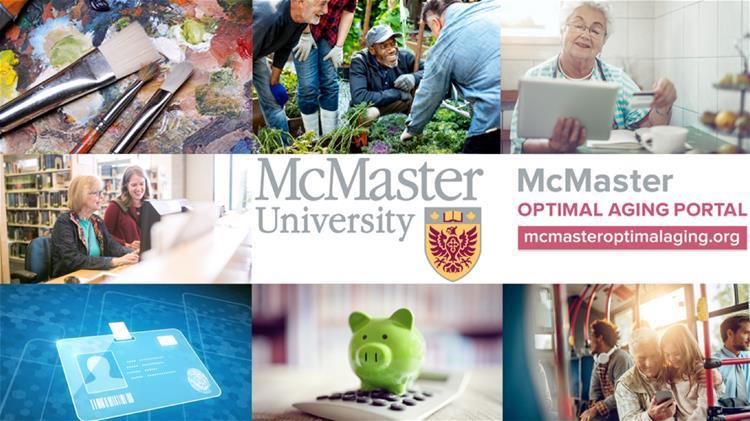
Published: December 7, 2017
The McMaster Optimal Aging Portal is excited to offer citizens and stakeholders a more comprehensive evidence source through the addition of evidence-based content about the social aspects of aging. This new content (featuring topics such as civic engagement, consumer protection, and transportation) complements the high-quality information already provided about the health aspects of aging. The broader range of content on the McMaster Optimal Aging Portal will better support citizens in making informed decisions as they age.
McMaster University has a long history of strength in aging research, and is dedicated to creating a brighter world by advancing human and societal health and well-being.
The addition of this social content to the McMaster Optimal Aging Portal was made possible by Forum+ through their launch of the beta version of Social Systems Evidence, an online repository designed to better support policymakers, stakeholders and researchers who want to access the best available research evidence in a timely manner.
Social Systems Evidence provides policymakers and stakeholders with better access to research evidence
With a growing international focus on evidence-informed policymaking across government and on achieving the UN’s Sustainable Development Goals, Forum+ has launched the beta version of Social Systems Evidence to better support policymakers, stakeholders and researchers who want to access the best available research evidence in a timely manner.
“For all those looking for evidence to support policy decisions, we’re trying to help you do this better or more efficiently,” said John N. Lavis, Director of Forum+.
The addition to the McMaster Optimal Aging Portal of Social Systems Evidence content about the social aspects of aging (such as civic engagement, consumer protection, and transportation), will complement the high-quality information already provided about the health aspects of aging. The broader range of content will better support citizens in making informed decisions as they age.
Social Systems Evidence will soon be the world’s most comprehensive, continuously updated repository of research evidence about the programs, services and products available in 16 government sectors and program areas (i.e., community and social services, culture and gender, economic development and growth, education, transportation), as well as the governance, financial and delivery arrangements within which these programs and services are provided, and the implementation strategies that can help to ensure that these programs and services get to those who need them.

